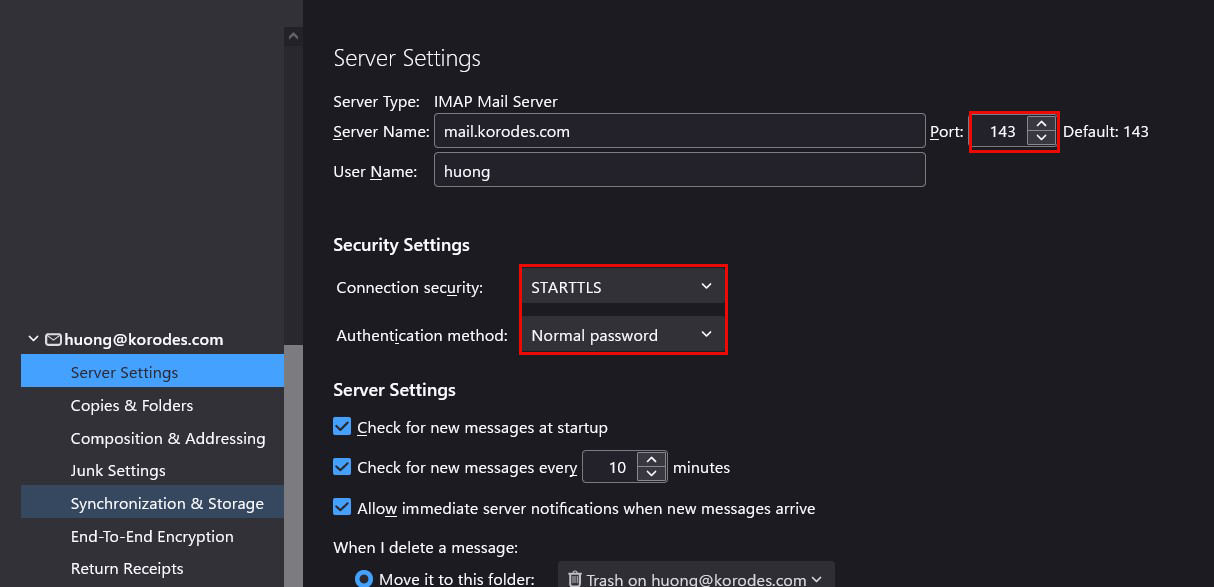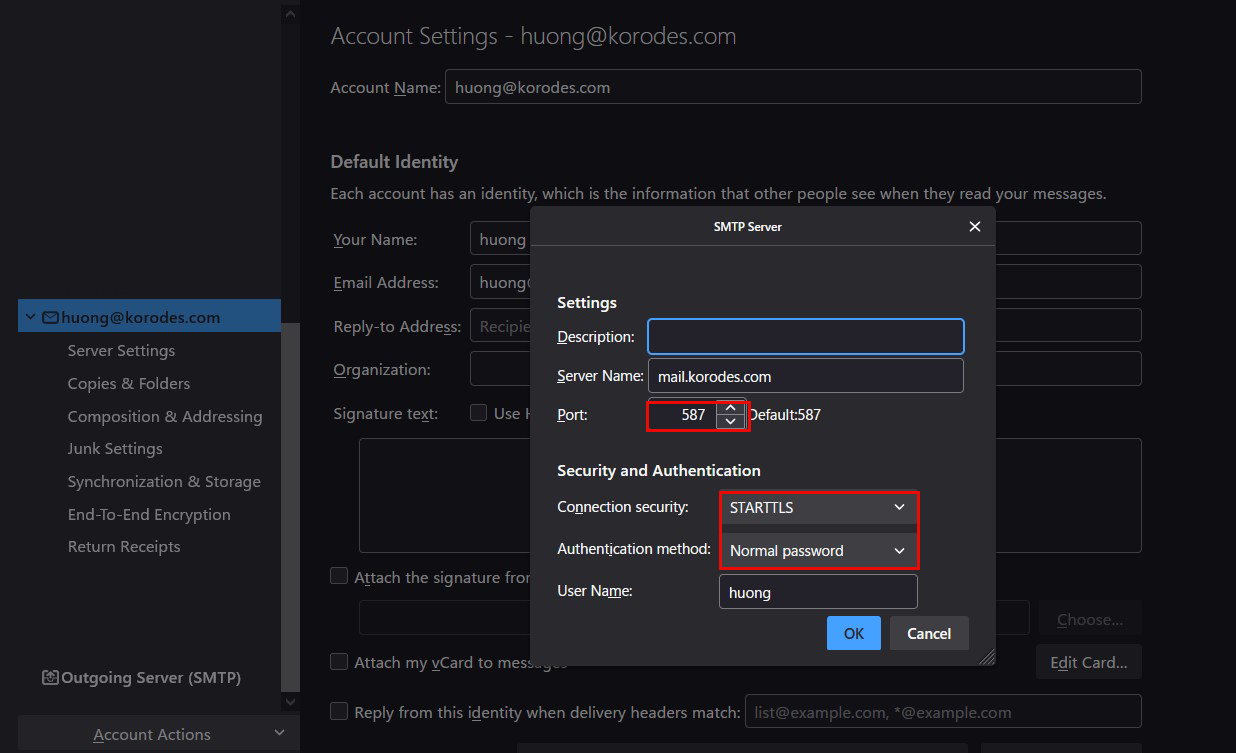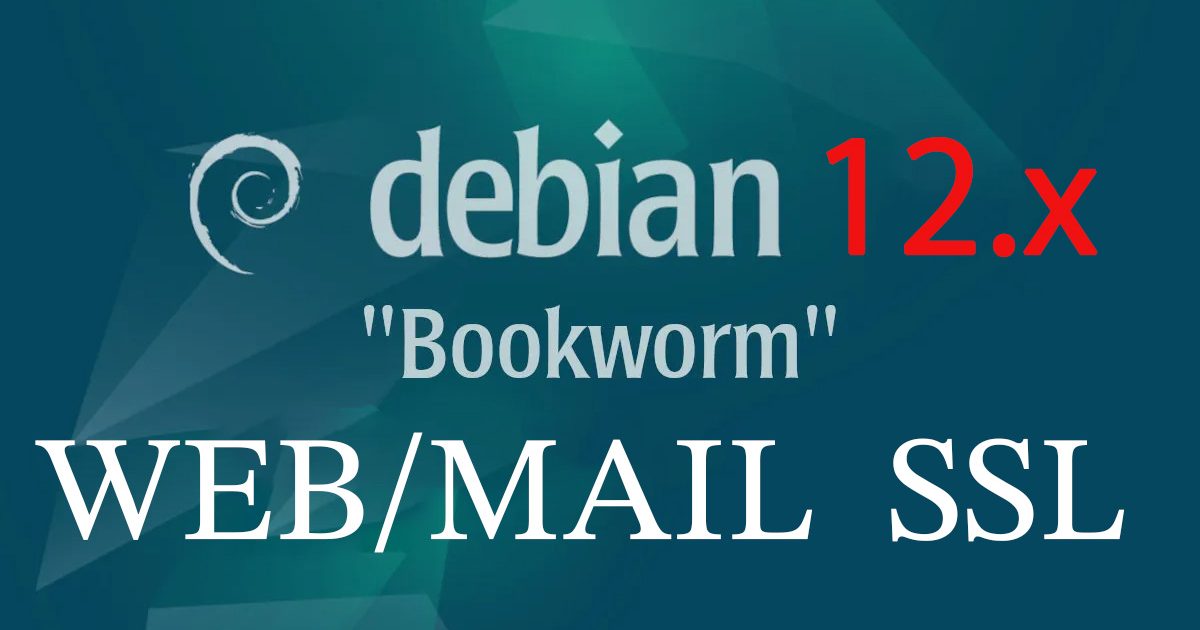Contents
1. Obtain a certificate (Let's Encrypt)
1.1 advance preparation
1.Enable mod_ssl
|
1 |
# a2enmod ssl |
2.Package management system Snappy installed
Since the SSL certificate issuing tool "certbot" of Let's Encrypt is recommended to be installed using "snap" after 2021, install Snapd first.
|
1 |
# apt -y install snapd |
Bring snapd version up to date
|
1 2 3 4 5 |
# snap install core core 16-2.61.4-20240607 from Canonical✓ installed # snap refresh core snap "core" has no updates available |
Version Check
|
1 2 3 4 5 6 |
# snap --version snap 2.61.4 snapd 2.61.4 series 16 debian 12 kernel 6.1.0-27-amd64 |
1.2.certbot package install
|
1 2 |
# snap install --classic certbot certbot 3.0.1 from Certbot Project (certbot-eff✓) installed |
Create symbolic link to /snap/bin/certbot
|
1 |
# ln -s /snap/bin/certbot /usr/bin/certbot |
Confirmation
|
1 2 3 4 5 |
# ls -la /usr/bin/certbot lrwxrwxrwx 1 root root 17 Nov 18 12:02 /usr/bin/certbot -> /snap/bin/certbot # ls -la /snap/bin/certbot lrwxrwxrwx 1 root root 13 Nov 18 12:01 /snap/bin/certbot -> /usr/bin/snap |
1.3 Obtain a Let's Encrypt Certificate
It is assumed that a web server such as Apache httpd or Nginx is running.
If the web server is not running on the server where the work is to be performed, follow the procedure below under "Obtaining a Let's Encrypt certificate when the web server is not running".
It is also assumed that the server on which the work is to be performed (the server with the FQDN of the server from which you want to obtain the certificate) is accessible from the Internet at port 80.
|
1 |
# certbot certonly --webroot -w /var/www/html/[FQDN] -d [FQDN] |
#First time only, you must register your e-mail address and agree to the Terms of Use Specify an e-mail address that can receive your messages.
|
1 2 3 4 5 6 7 8 9 10 11 12 13 14 15 16 17 18 19 20 21 22 23 24 25 26 27 28 29 30 31 32 33 34 |
Saving debug log to /var/log/letsencrypt/letsencrypt.log Enter email address (used for urgent renewal and security notices) (Enter 'c' to cancel): [Administrator Email Address] - - - - - - - - - - - - - - - - - - - - - - - - - - - - - - - - - - - - - - - - Please read the Terms of Service at https://letsencrypt.org/documents/LE-SA-v1.3-September-21-2022.pdf. You must agree in order to register with the ACME server. Do you agree? - - - - - - - - - - - - - - - - - - - - - - - - - - - - - - - - - - - - - - - - (Y)es/(N)o: Y - - - - - - - - - - - - - - - - - - - - - - - - - - - - - - - - - - - - - - - - Would you be willing, once your first certificate is successfully issued, to share your email address with the Electronic Frontier Foundation, a founding partner of the Let's Encrypt project and the non-profit organization that develops Certbot? We'd like to send you email about our work encrypting the web, EFF news, campaigns, and ways to support digital freedom. - - - - - - - - - - - - - - - - - - - - - - - - - - - - - - - - - - - - - - - - (Y)es/(N)o: Y Account registered. Requesting a certificate for [FQDN] Successfully received certificate. Certificate is saved at: /etc/letsencrypt/live/[FQDN]/fullchain.pem Key is saved at: /etc/letsencrypt/live/[FQDN]/privkey.pem This certificate expires on 2025-02-16. These files will be updated when the certificate renews. Certbot has set up a scheduled task to automatically renew this certificate in the background. - - - - - - - - - - - - - - - - - - - - - - - - - - - - - - - - - - - - - - - - If you like Certbot, please consider supporting our work by: * Donating to ISRG / Let's Encrypt: https://letsencrypt.org/donate * Donating to EFF: https://eff.org/donate-le - - - - - - - - - - - - - - - - - - - - - - - - - - - - - - - - - - - - - - - - |
「Successfully received certificate.」
# The following certificate is obtained under [/etc/letsencrypt/live/[FQDN]/] as described in the message
# cert.pem
#chain.pem
# fullchain.pem
# privkey.pem
Obtaining a Let's Encrypt certificate when the web server is not running
It is a prerequisite that the server on which the work is to be performed is accessible from the Internet at port 80.
#Use the simple Web server function by specifying [--standalone].
# -d [FQDN from which you want to obtain a certificate]
FQDN (Fully Qualified Domain Name) : Hostname. Domain name without abbreviation
# If there are multiple FQDNs for which you want to obtain certificates, specify multiple -d [FQDNs for which you want to obtain certificates]
|
1 |
# certbot certonly --standalone -d [FQDN] |
1.4 Automatic renewal of certificates (Let's Encrypt)
①Pre-registration testing
First, test the automatic renewal using the following --dry-run option. With this option, the certificate is not renewed, but only the operation is tested, so there is no need to worry about being caught by the limit on the number of times a certificate can be obtained.
|
1 |
# certbot renew --dry-run |
②When you install the snap version of certbot, the automatic certificate renewal function is also installed.
|
1 2 3 4 5 6 7 8 9 10 11 12 13 14 15 |
# systemctl list-timers | less NEXT LEFT LAST PASSED UNIT ACTIVATES Mon 2024-11-18 12:09:00 JST 1min 12s left Mon 2024-11-18 11:39:02 JST 28min ago phpsessionclean.timer phpsessionclean.service Mon 2024-11-18 18:16:00 JST 6h left - - snap.certbot.renew.timer snap.certbot.renew.service Mon 2024-11-18 23:56:30 JST 11h left Mon 2024-11-18 10:53:23 JST 1h 14min ago apt-daily.timer apt-daily.service Tue 2024-11-19 00:00:00 JST 11h left - - dpkg-db-backup.timer dpkg-db-backup.service Tue 2024-11-19 00:00:00 JST 11h left Mon 2024-11-18 10:38:02 JST 1h 29min ago logrotate.timer logrotate.service Tue 2024-11-19 06:54:39 JST 18h left Mon 2024-11-18 10:53:23 JST 1h 14min ago apt-daily-upgrade.timer apt-daily-upgrade.service Tue 2024-11-19 10:30:02 JST 22h left Mon 2024-11-18 11:58:30 JST 9min ago man-db.timer man-db.service Tue 2024-11-19 10:53:05 JST 22h left Mon 2024-11-18 10:53:05 JST 1h 14min ago systemd-tmpfiles-clean.timer systemd-tmpfiles-clean.service Sun 2024-11-24 03:10:12 JST 5 days left Sun 2024-11-17 10:30:35 JST 1 day 1h ago e2scrub_all.timer e2scrub_all.service Mon 2024-11-25 00:12:57 JST 6 days left Mon 2024-11-18 11:11:01 JST 56min ago fstrim.timer fstrim.service 10 timers listed. Pass --all to see loaded but inactive timers, too. |
snap.certbot.renew.timer is registered
Check the unit file for snap.certbot.renew.timer
|
1 2 3 4 5 6 7 8 9 10 11 12 13 14 15 |
# vi /etc/systemd/system/snap.certbot.renew.timer [Unit] # Auto-generated, DO NOT EDIT Description=Timer renew for snap application certbot.renew Requires=snap-certbot-4193.mount After=snap-certbot-4193.mount X-Snappy=yes [Timer] Unit=snap.certbot.renew.service OnCalendar=*-*-* 03:33 OnCalendar=*-*-* 18:16 [Install] WantedBy=timers.target |
According to the above settings, it will attempt to update at 3:33 and 18:16 every day as specified in the OnCalender parameter (however, the set time will change randomly for each update).
Check the unit file snap.certbot.renew.service
|
1 2 3 4 5 6 7 8 9 10 11 12 13 14 15 16 17 18 |
# vi /etc/systemd/system/snap.certbot.renew.service [Unit] # Auto-generated, DO NOT EDIT Description=Service for snap application certbot.renew Requires=snap-certbot-4193.mount Wants=network.target After=snap-certbot-4193.mount network.target snapd.apparmor.service X-Snappy=yes [Service] EnvironmentFile=-/etc/environment ExecStart=/usr/bin/snap run --timer="00:00~24:00/2" certbot.renew SyslogIdentifier=certbot.renew Restart=no WorkingDirectory=/var/snap/certbot/4193 TimeoutStopSec=30 Type=oneshot |
However, the web server that uses the certificate will not be restarted, so set up a script that will run automatically after the update
|
1 2 3 4 |
# vi /etc/letsencrypt/renewal-hooks/post/web_restart.sh #!/bin/bash systemctl restart apache2 |
|
1 |
# chmod 755 /etc/letsencrypt/renewal-hooks/post/web_restart.sh |
2. SSL/TLS (Let's Encrypt) configuration for Apache2
①Edit Apache2 SSL-related configuration files
hoge.com-ssl in hoge.com-ssl.conf is an arbitrary name
|
1 2 3 4 5 6 7 8 9 10 11 12 13 14 15 16 17 18 19 20 21 22 |
# cd /etc/apache2/sites-available/ # cp default-ssl.conf hoge.com-ssl.conf # vi hoge.com-ssl.conf # Line 2:Administrator address change ServerAdmin [Administrator Email Address] # Line 4:change DocumentRoot /var/www/html/[FQDN]/ # Line 12,13:change ErrorLog ${APACHE_LOG_DIR}/[FQDN].error.log CustomLog ${APACHE_LOG_DIR}/[FQDN].access.log combined # Lines 31,32: comment out and add below #SSLCertificateFile /etc/ssl/certs/ssl-cert-snakeoil.pem #SSLCertificateKeyFile /etc/ssl/private/ssl-cert-snakeoil.key SSLCertificateFile /etc/letsencrypt/live/[FQDN]/cert.pem SSLCertificateKeyFile /etc/letsencrypt/live/[FQDN]/privkey.pem # Line 43:Uncomment and change to the chain file obtained in [1]. SSLCertificateChainFile /etc/letsencrypt/live/[FQDN]/chain.pem |
②Reflecting and activating the configuration file
|
1 2 3 4 5 6 7 8 |
# a2ensite hoge.com-ssl.conf Enabling site hoge.com-ssl.conf. To activate the new configuration, you need to run: systemctl reload apache2 # Default Disable # a2dissite default-ssl.conf # systemctl restart apache2 |
③http to https redirect
|
1 |
# a2enmod rewrite |
One of the following methods
|
1 2 3 4 5 6 7 8 9 10 |
1How to create a .htaccess file Create .htaccess in /var/www/html/[FQDN]/ and fill in the following RewriteEngine on RewriteCond %{HTTPS} off RewriteRule ^(.*)$ https://%{HTTP_HOST}%{REQUEST_URI} [R=301,L] 2.How to fill in /vhost-yourdomain.conf RewriteEngine on RewriteCond %{HTTPS} off RewriteRule ^(.*)$ https://%{HTTP_HOST}%{REQUEST_URI} [R=301,L] |
④Reflection of settings and startup
If you chose to fill in vhost-yourdomain.conf above
|
1 |
# a2ensite vhost-yourdomain.conf |
Apache Restart
|
1 |
# systemctl restart apache2 |
3. SSL/TLS (Let's Encrypt) settings on the mail server
3.1 Obtaining a certificate for the mail server
Obtain a certificate for the mail server, but it cannot be obtained in the same way as above, so the following with the "--standalone" option fails.
|
1 |
# certbot certonly --standalone -d mail.<domain name> |
If I stop the web server once and then do it, it succeeds as follows
|
1 2 |
# systemctl stop apache2.service # certbot certonly --standalone -d mail.<domain name> |
|
1 2 3 4 5 6 7 8 9 10 11 12 13 14 15 |
Saving debug log to /var/log/letsencrypt/letsencrypt.log Requesting a certificate for mail.[Domain name] Successfully received certificate. Certificate is saved at: /etc/letsencrypt/live/mail.[Domain name]/fullchain.pem Key is saved at: /etc/letsencrypt/live/mail.[Domain name]/privkey.pem This certificate expires on 2025-02-16. These files will be updated when the certificate renews. Certbot has set up a scheduled task to automatically renew this certificate in the background. - - - - - - - - - - - - - - - - - - - - - - - - - - - - - - - - - - - - - - - - If you like Certbot, please consider supporting our work by: * Donating to ISRG / Let's Encrypt: https://letsencrypt.org/donate * Donating to EFF: https://eff.org/donate-le - - - - - - - - - - - - - - - - - - - - - - - - - - - - - - - - - - - - - - - - |
3.2 Postfix Configuration
|
1 2 3 4 5 6 7 8 |
# vi /etc/postfix/main.cf ● Add to the last line smtpd_use_tls = yes smtp_tls_mandatory_protocols = !SSLv2, !SSLv3 smtpd_tls_mandatory_protocols = !SSLv2, !SSLv3 smtpd_tls_cert_file = /etc/letsencrypt/live/mail.<domain name>/fullchain.pem smtpd_tls_key_file = /etc/letsencrypt/live/mail.<domain name>/privkey.pem smtpd_tls_session_cache_database = btree:${data_directory}/smtpd_scache |
|
1 2 3 4 5 6 7 8 9 10 11 12 |
# vi /etc/postfix/master.cf # PerLine 21-24 : Uncomment submission inet n - y - - smtpd -o syslog_name=postfix/submission #-o smtpd_tls_security_level=encrypt -o smtpd_sasl_auth_enable=yes # Add to the last line smtps inet n - y - - smtpd -o syslog_name=postfix/smtps -o smtpd_tls_wrappermode=yes -o smtpd_sasl_auth_enable=yes |
3.3 Dovecot Configuration
|
1 2 3 4 5 6 7 8 9 |
# vi /etc/dovecot/conf.d/10-ssl.conf Line 6:confirmation ssl = yes Line 12,13:Comment and add the following certificate/key file specification #ssl_cert = </etc/dovecot/private/dovecot.pem #ssl_key = </etc/dovecot/private/dovecot.key ssl_cert = </etc/letsencrypt/live/mail.[domain name]/fullchain.pem ssl_key = </etc/letsencrypt/live/mail.[domain name]/privkey.pem |
Allow Port 587
|
1 2 |
# ufw allow 587/tcp # ufw reload |
|
1 |
# systemctl restart postfix dovecot |
3.4 Thunderbird Settings
Incoming server
Port : 143
Connection security : STARTTLS
Authentication method : Normal password

Sending server
Port : 587
Connection security : STARTTLS
Authentication method : Normal password



